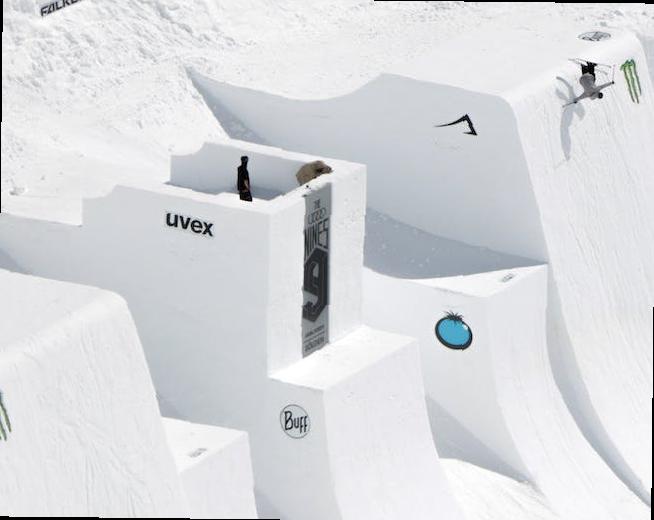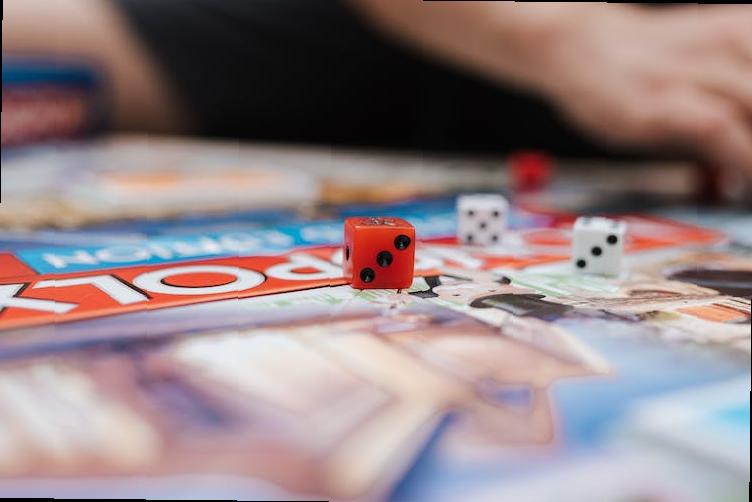
Exploring The Best Non Gamstop Casino Features
Non Gamstop casinos have become increasingly popular in the UK gambling market due to the…

Nonprofit organizations in Minnesota may seek a gambling license to conduct lawful gambling activities as a means of fundraising, but they must adhere to the eligibility requirements set forth by the Minnesota Gambling Control Board (GCB). Gambling for charitable purposes is legal in the state of Minnesota, but applying for a gambling license can be an arduous process. There are several requirements that must be met by a nonprofit organization to successfully obtain a gambling license from the GCB.
First and foremost, a nonprofit organization must be registered with the Minnesota Secretary of State and must have obtained a federal tax-exempt status from the Internal Revenue Service. Nonprofit organizations must also have a physical location in Minnesota, and the proceeds from their gambling activities may only be used to further their charitable mission.
Additionally, the organization must have a qualified gambling manager who is responsible for overseeing all gambling activities and must pass a thorough background check. The organization must also submit financial statements, tax returns, and other documentation to prove that they have a history of financial stability and responsibility.
Failure to meet any of these requirements may result in denial of the gambling license application. It is important for nonprofit organizations to fully understand the eligibility requirements and be prepared to provide all necessary documentation to ensure a successful application process.
Nonprofit organizations wishing to apply for a gambling license in Minnesota must fulfill various requirements to secure a license. These requirements include:
1. To be registered with the Minnesota Secretary of State as a nonprofit organization.
2. To have been in operation for a minimum of three years.
3. To appoint a gambling manager and designate a gambling premises.
4. To submit an application form to the Minnesota Gambling Control Board.
5. To obtain a surety bond as required by state law.
6. To complete the Minnesota Lawful Gambling Manual course offered by the University of Minnesota.
7. To provide a record of all transactions involving lawful gambling for the previous year.
8. To pass a background check and fingerprinting of all individuals with significant control within the organization.
9. To obtain specific permits from the applicable city or county where the gambling activity will take place.
In conclusion, nonprofit organizations seeking a gambling license in Minnesota must meet several requirements set forth by the state, such as being registered with the Secretary of State, ensuring that certain individuals obtain the proper licenses, and providing financial and transactional records. These requirements are put in place to maintain the integrity and fairness of all gambling activities and to ensure that nonprofits engaging in gambling activities are legitimate and trustworthy organizations.
To obtain a gambling license in Minnesota for a nonprofit, one must apply to the state’s Gambling Control Board. The board is responsible for regulating eligibility for gambling licenses and ensuring compliance with state laws and regulations.
To begin the application process, the nonprofit must first determine which type of gambling activity they plan to conduct. There are several options available, including bingo, raffles, paddlewheels, pull-tabs, and tipboards. Each of these activities has its own specific requirements that must be met in order to obtain a license.
Once the nonprofit has determined which type of gambling activity they wish to conduct, they can then begin the application process. This will involve completing an application form and providing various documents and information, such as proof of nonprofit status and financial statements.
The Gambling Control Board will review the application and determine whether or not to grant the license based on the nonprofit’s compliance with state laws and regulations. If approved, the nonprofit will be issued a license that allows them to conduct the approved gambling activity.
To maximize your free spins winnings, it’s recommended to look for the best no Gamstop free spins offers.
The license application process for obtaining a gambling license in Minnesota for a nonprofit requires completing several steps thoroughly. Firstly, the nonprofit must file a completed application with the Minnesota Gambling Control Board. This application must also include fingerprints and a background check on any individual involved or employed by the nonprofit. The application fee must also be submitted along with the application.
Secondly, the nonprofit must maintain proper records on their activities involving gambling. These records must be available for any inspection by the Gambling Control Board. Proper record-keeping includes details of all transactions, receipts, invoices, and other important documents.
Additionally, the nonprofit must comply with state and federal requirements for any income generated from gambling activities. This includes reporting any income and paying the appropriate taxes to the appropriate government agencies.
Once the application is submitted, the Minnesota Gambling Control Board will review the application and conduct background checks on all individuals involved with the nonprofit. The board will then notify the nonprofit if their application has been approved or denied.
For UK casinos not on Gamstop, the slot machine variety is diverse and extensive.
In the state of Minnesota, lawful gambling is defined as any activity where a person risks something of value in hopes of gaining something of value in return, and where the outcome is based on chance. This includes games like bingo, pull-tabs, raffles, and paddle wheels. In order for a nonprofit organization to conduct lawful gambling in Minnesota, they must obtain a gambling license from the Minnesota Gambling Control Board.
To apply for a gambling license, the nonprofit organization must first establish a nonprofit corporation or be registered as a nonprofit organization with the Office of the Secretary of State. They must also have been in existence and engaged in lawful purposes for at least three years. The organization must then complete an application for a gambling license, which includes providing details on the specific types of games they intend to offer, the location where the games will be held, and a list of all officers and key employees involved in the gambling operation.
Once the gambling license application is submitted, the nonprofit organization must undergo a background investigation, which includes fingerprinting and a review of financial records. If the application is approved, the organization will be issued a gambling license, which must be renewed annually.
It is important for nonprofit organizations in Minnesota to understand the regulations surrounding lawful gambling and to follow all guidelines for obtaining a gambling license. Any violations can result in fines or even the revocation of the organization’s license.
In Minnesota, nonprofit organizations may apply for a lawful gambling license. To qualify for a license, organizations must meet the following criteria:
1. The organization must be registered as a nonprofit with the appropriate state and federal agencies.
2. The organization must have been in existence for at least one year prior to the application.

3. The organization must have a gambling manager who has completed the required training and passed a criminal background check.
4. The organization must have a bank account dedicated solely to gambling proceeds.
5. The organization must use all gambling proceeds for lawful purposes, such as supporting the organization’s charitable goals.
6. The organization must comply with all reporting and record-keeping requirements set forth by the Minnesota Gambling Control Board.
7. The organization’s gambling activities must be conducted at a site approved by the Minnesota Gambling Control Board.
Overall, obtaining a lawful gambling license in Minnesota requires careful attention to the criteria set forth by the state’s gambling control board. Organizations that meet these criteria and are approved for a license may operate lawful gambling activities to support their charitable goals.
When applying for a gambling license in Minnesota for a nonprofit organization, it is important to be familiar with the types of allowable games. The Minnesota Gambling Control Board regulates charitable gambling and allows the following games to be played at licensed nonprofit organizations:
1. Pull-Tabs: A pull-tab is a game in which players peel back paper tabs to reveal symbols or numbers. If the combination of symbols or numbers matches a winning combination, the player wins a prize.
2. Raffles: Raffles are games of chance in which players purchase tickets with a chance to win a prize. The winning ticket is drawn randomly.
3. Tipboards: Tipboards are similar to pull-tabs but are played on a board rather than in a book. Players purchase squares on the board and the winning square is determined by the last digit of the scores of a predetermined event, such as a sports game.
4. Bingo: Bingo is a game in which players purchase cards with a grid of numbers. A caller draws numbered balls at random and players mark the corresponding numbers on their cards. The first player to fill a row or pattern wins a prize.
It is important to note that Minnesota does not allow other forms of gambling such as slot machines, video lottery terminals, or sports betting. Nonprofit organizations must follow strict guidelines and regulations when operating these types of allowable games.

To obtain a gambling license in MN for a nonprofit organization, the organization must apply for a permit and pay the required fee. The permit application must be accompanied by a detailed explanation of the event or activity, such as who will be selling the tickets, the date and location of the event, and the types of games that will be played. In addition, the nonprofit organization must provide financial information about its share and expenses related to the gambling activity.
The share refers to the portion of the proceeds from the gambling activity that the nonprofit organization keeps, while expenses refer to the costs associated with running the event, such as rent, supplies, and salaries. It is essential to ensure that the share and expenses are accurately reported to the relevant authorities and that the organization complies with all laws and regulations governing gambling activities.
For those looking to experience virtual reality casinos, Non UK casinos without Gamstop can offer an immersive and unique gaming experience. However, it is crucial to remember that gambling can be addictive and should be approached responsibly. Nonprofit organizations should take steps to ensure that their gambling activities are conducted in a safe and transparent manner and that any proceeds are used for their charitable purposes.

In order to obtain a gambling license in Minnesota as a nonprofit organization, there are certain reporting and record-keeping requirements that must be met. The organization must maintain accurate financial records and all gambling activity must be documented. This includes tracking all winnings and losses, as well as expenses related to the gambling activity.
In addition to record-keeping, the organization must also file regular reports with the Minnesota Gambling Control Board. These reports must detail the organization’s financial activity related to gambling, including any profits or losses.
The organization must also comply with all laws and regulations related to gambling in Minnesota, including the types of games that can be offered and the amount of money that can be wagered.

If you’re looking for a non gamstop casino low deposit, you can still enjoy high payout percentages.
Obtaining a gambling license in Minnesota for a nonprofit organization requires following a few essential steps. First, the nonprofit must review the various forms of gambling licenses available for nonprofits and identify the most suitable option. Once identified, the nonprofit can then obtain an application form and ensure to provide accurate and comprehensive information, which should include the names of the organization’s officers, their financial history, criminal records, and previous gambling-related offenses.
After completing the application, organizations must provide it to the Minnesota Gambling Control Board for verification and processing. The Board reviews the application and, if necessary, subjects the organization to investigations to ensure it meets the necessary criteria. Nonprofits must also undergo background checks to confirm their suitability to handle gambling activities.
Once approved, the nonprofit organization will receive its gambling license, which will be valid for a specific period, usually one year. When the license is about to expire, the nonprofit must apply for a renewal, ensuring they have complied with all the renewal requirements of the Gambling Control Board, and pay the appropriate renewal fees.
In conclusion, obtaining and renewing a gambling license is an essential activity for any nonprofit organization looking to engage in gambling activities in Minnesota. It requires careful planning, adherence to the laws and regulations, and the payment of fees. To play Jackpot Slots, visit PayPal casinos not on GamStop.
Potential penalties for noncompliance when seeking a gambling license for a nonprofit in Minnesota can be significant. Minnesota law imposes strict regulations regarding the operation of nonprofit gambling organizations, and failure to comply with these laws may result in severe repercussions.
Nonprofit organizations that operate gambling activities without a license may face steep monetary fines, and their members or directors could also face criminal charges. Additionally, the organization may be required to forfeit its proceeds from such activities.
In cases of noncompliance, the Minnesota Gambling Control Board may also revoke or suspend the organization’s license to operate gambling activities. This action could lead to significant financial losses for the nonprofit organization and may harm its reputation in the community.
Furthermore, noncompliance with Minnesota’s gambling laws can affect an organization’s tax-exempt status, potentially leading to additional penalties from the Internal Revenue Service.
To avoid possible penalties, nonprofit organizations seeking a gambling license in Minnesota must carefully follow all applicable state laws and regulations. It is critical to understand the legal requirements of operating a gambling activity and to ensure that all relevant individuals involved in the organization are fully informed and engaged in compliance efforts. A licensed attorney can be instrumental in assisting nonprofit organizations in navigating the complexities of the state’s gambling laws and regulations.
In conclusion, obtaining a gambling license for a nonprofit organization in Minnesota can be a complex and time-consuming process. However, following the steps outlined by the Minnesota Gambling Control Board and ensuring compliance with all state laws and regulations can increase your chances of acquiring a license successfully. It is essential to familiarize yourself with the relevant state laws governing nonprofit organizations’ charitable gambling activities and utilize the resources provided by the Board to ensure a smooth and successful application process. Failing to comply with the stringent requirements can result in hefty fines and even criminal charges. Therefore, be thorough in your preparation and ensure that your organization is fully compliant with all state and local regulations before submitting your application.
In order to obtain a gambling license in Minnesota for a nonprofit organization, you will need to take specific steps to apply for the license. Firstly, you will need to determine the type of gambling activity that you want to offer, whether it is raffle, bingo, or other types of games. Secondly, you need to obtain a Minnesota Tax ID number for your nonprofit organization. Thirdly, you should register with the Minnesota Secretary of State and complete the necessary paperwork for charitable gambling organizations. Lastly, you must submit an application to the Minnesota Gambling Control Board, and once approved, you can begin your gambling activities.
The requirements for obtaining a gambling license for a nonprofit organization in Minnesota can be both daunting and complicated. However, by following the steps outlined by the Board and doing your due diligence, you can navigate the process successfully and ensure that your organization is in compliance with all state laws and regulations. Obtaining a license can enable your nonprofit to raise funds for its charitable activities while ensuring that you operate safely and responsibly.